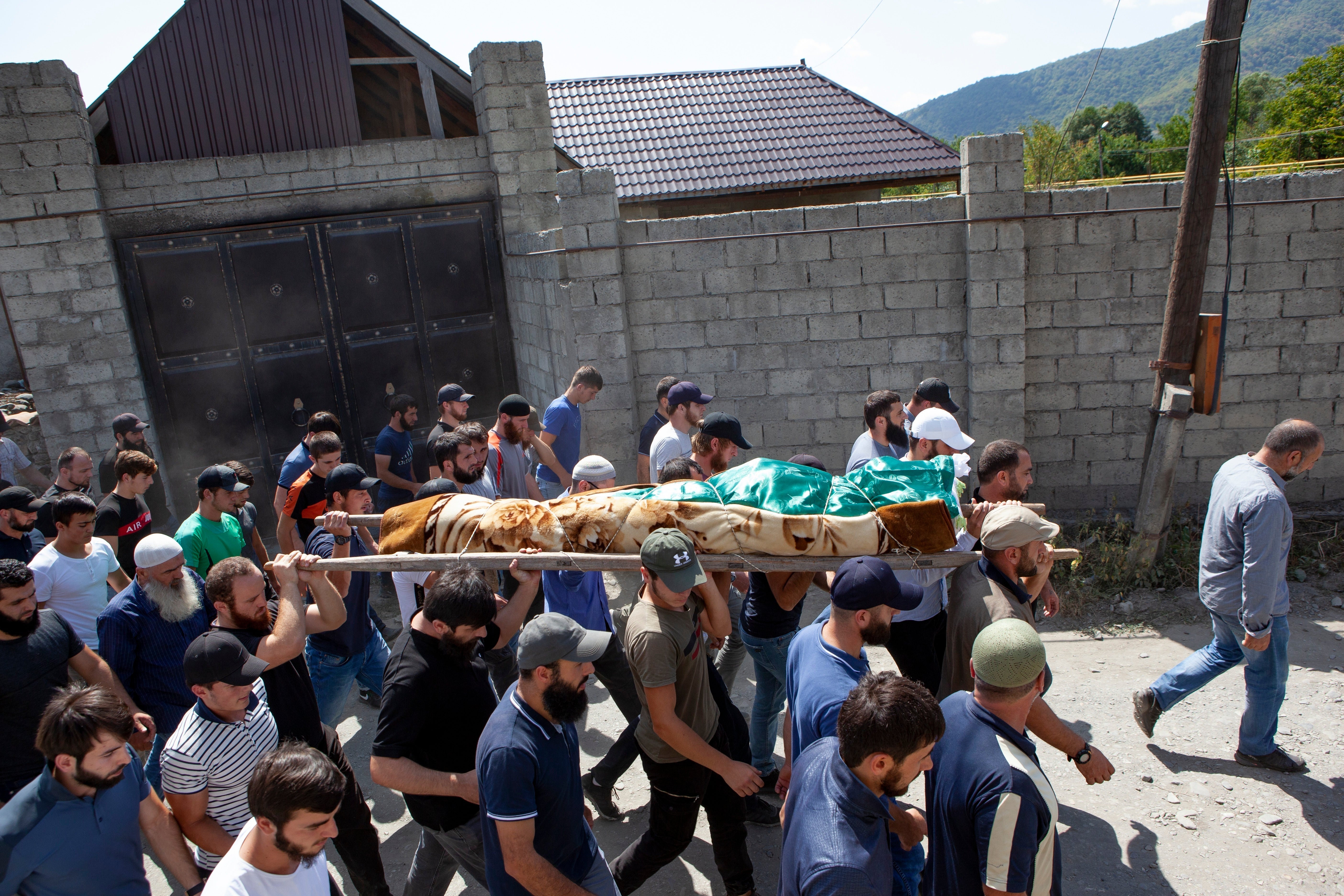German court verdict in Berlin killing poses policy problem
A Berlin court will deliver its verdict Wednesday in the trial of a Russian man accused of a killing in the German capital two years ago that prosecutors say was ordered by Russia

Your support helps us to tell the story
From reproductive rights to climate change to Big Tech, The Independent is on the ground when the story is developing. Whether it's investigating the financials of Elon Musk's pro-Trump PAC or producing our latest documentary, 'The A Word', which shines a light on the American women fighting for reproductive rights, we know how important it is to parse out the facts from the messaging.
At such a critical moment in US history, we need reporters on the ground. Your donation allows us to keep sending journalists to speak to both sides of the story.
The Independent is trusted by Americans across the entire political spectrum. And unlike many other quality news outlets, we choose not to lock Americans out of our reporting and analysis with paywalls. We believe quality journalism should be available to everyone, paid for by those who can afford it.
Your support makes all the difference.A Berlin court will deliver its verdict Wednesday in the trial of a Russian man accused of a killing in the German capital two years ago that prosecutors say was ordered by Russia.
The slaying of Zelimkhan “Tornike” Khangoshvili, a 40-year-old Georgian citizen of Chechen ethnicity, sparked outrage in Germany and prompted the government to expel two Russian diplomats — and a reciprocal response by Moscow
The outcome of the trial could stoke fresh tensions between Germany and Russia at a time when the new government of Chancellor Olaf Scholz is trying to find its foreign policy footing with Moscow.
The victim's relatives, who under German law were allowed to take part in the trial as co-plaintiffs, accused Russia last week of trying to “send a message” to its political enemies by killing Khangoshvili, who had claimed asylum in Germany three years earlier.
Federal prosecutors have asked the court to sentence the defendant, identified by them as 56-year-old Russian national Vadim Krasikov, to life in prison.
Prosecutors alleged that Krasikov traveled to Berlin under the alias Vadim Solokov in August 2019 at the behest of the Russian government for a “state-contracted killing,” shooting the victim from behind with a silencer-fitted handgun near the Kleiner Tiergarten park. With Khangoshvili lying on the ground, Krasikov allegedly fired two more bullets into his head, killing him.
Witnesses saw the suspect throw a bike, a gun and a wig in the Spree River near the scene and alerted police, who quickly arrested him before he could make off on an electric scooter parked in a doorway.
While no pleas are entered in the German trial system, defense lawyers this week asked the court to acquit their client, saying he isn't the man prosecutors allege him to be.
Russian President Vladimir Putin’s spokesman, Dmitry Peskov, has called the allegations of Russian involvement in the Berlin killing “absolutely groundless.”
But months after the killing, Putin said after a meeting with then Chancellor Angela Merkel that the victim had been a “bandit” and a “murderer,” accusing him of killing scores of people during fighting in the Caucasus.
German-Russian relations took a further hit last year after Merkel intervened to fly poisoned Russian opposition leader Alexei Navalny to Berlin for medical treatment. Navalny says he was poisoned by Russian agents, which Moscow denies. After returning to his home country, Navalny was sentenced to 2 1/2 years in prison for violating the terms of his probation while convalescing in Germany.
German's new foreign minister, Annalena Baerbock, has called for a tougher stance toward Russia, especially over its military buildup near Ukraine. But Scholz has called for a new “Ostpolitik” — or policy toward the east — of the kind that his Social Democratic predecessor as chancellor, Willy Brandt, pursued during the Cold War.
Subscribe to Independent Premium to bookmark this article
Want to bookmark your favourite articles and stories to read or reference later? Start your Independent Premium subscription today.